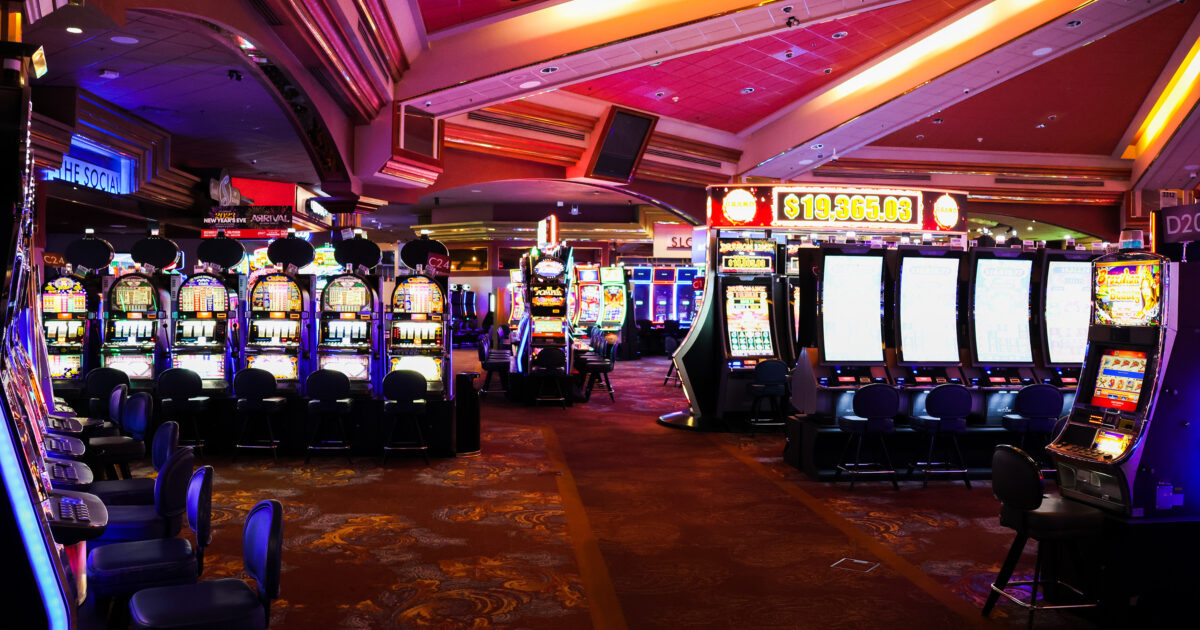
Casino entertainment have long been an integral part of human culture, delivering not just entertainment but a intriguing reflection of our dreams, wishes, and fears. From the rotating wheels of a slot machine to the tactical play of poker, these games embody a spectrum of human sentiments and incidents. At their core, casino games are not just a chance to win money; they are a snapshot of life itself, where danger and gain converge and fortunes can change in an instant.
As players convene around tables or sit in front of glowing machines, they participate in a tradition that transcends mere betting. These games mirror our innate desires for relationships, thrill, and the quest for chance. They also unveil deeper truths about human behavior, such as our relationship with luck and the adrenaline of the unknown. In exploring casino games, we discover not only the nuances of play but also the complex weave of the human experience, showcasing our woven narratives of goal and reality.
The Mind Behind Gambling
Wagering is intrinsically connected in the psyche of individuals, appealing to various feelings and desires. The thrill of risk-taking is a core aspect that draws players in, be it the thrill of spinning a roulette or the excitement of drawing a winning card in poker. This adrenaline is frequently likened to other forms of thrill, as the unpredictability of outcomes triggers a distinct psychological response. Players often find themselves entranced by the possibility of winning big, leading to an irresistible draw toward gambling games.
Additionally, a crucial component of the psychology behind gambling is the concept of optimism and ambition. Participants often nourish fantasies of financial freedom and the opulent lifestyle that can accompany winning. This optimism fuels their continued participation in gambling, as it provides a sense of purpose and the conviction that a life-changing win could be just one wager away. The story of overcoming odds and achieving success resonates with many, reinforcing their dedication to play and involve themselves with these games.
Finally, social dynamics play a significant role in gambling psychology. Casino environments are designed to foster social interaction, where players gather to share the journey of wins and losses. This communal aspect not only enhances enjoyment but also affects behavior, as individuals often mimic the actions of others around them. The social validation found in mutual thrill can enhance the emotional experience, making casino games a reflection of not just personal desires but also shared involvement within the gambling community.
## The Dual Nature of Risk and Reward
Gambling games embody the delicate balance between danger and gain that resonates profoundly with human nature. The excitement of placing a bet is often accompanied by a surge of excitement, as players are confronted with the chance of striking it rich, yet fully aware of the potential to lose. This twofold experience reflects a essential aspect of life: the decisions we face often come with intrinsic risks, and the chase for gain can push us to make risky moves we might not otherwise consider. In this way, gambling activities echo real-world choices, enticing gamblers to gamble not just their funds, but also their dreams.
The allure of grand jackpots and payouts fuels a sense of optimism, inspiring players to dream of a brighter future that could emerge from a fortunate turn of the roulette or turn of a card. This optimism can motivate individuals to engage in greater risks, encouraging them to extend their limits in search of economic benefit. However, just as in life, the outcomes of these decisions can lead to both triumph and despair. The stories of both big winners and those who have suffered everything at the casino demonstrate the unpredictable nature of chance and its impactful impact on our futures.
Ultimately, the interaction of engaging with gambling activities serves as a potent reminder of the human condition. Every round played is filled with the tension of ambiguity, as gamblers weigh the rewards against the dangers. This balance not only highlights the excitement that comes with betting but also reveals the weaknesses that come with the longing for more. As we journey through the challenges of choice and consequence in both the gambling world and in life, we find that the quest for gain shapes our character and experiences in profound ways.
Society and Loneliness in Casino Environment
Gambling culture is a unique mix of communal interaction and personal pursuit, reflecting the dualities of individual experience. Players often gather around games, experiencing in the excitement of the game, celebrating wins, and sympathizing over losses. This social aspect is essential, as it establishes a sense of community and bonding among diverse groups of individuals. Regular attendees to casinos may build friendships and develop routines, turning the gambling venue into a alternative home where they experience linked to a larger community of gamblers.
However, the allure of gambling activities can also result to isolation. As individuals become engrossed in the thrill of gambling, they may withdraw from personal relationships or fail to engage with the world outside the casino. For some, the pursuit of a jackpot can distract from real relationships, leading to loneliness. The experience of being among people yet experiencing solitary is not uncommon, as the attention shifts from collective fun to the individual concerns of each player’s path.
This interaction of community and solitude creates a rich mosaic that defines gaming atmosphere. It showcases the intricacy of human interactions, where joy and despair coexist. Casinos serve as both a refuge for social interaction and a platform for individual challenges, demonstrating how deeply connected our yearning for connection and the individual quest for wealth can be. In navigating this environment, players confront their own narratives—seeking both the rush of the game and the fellowship of other players, ultimately mirroring the broader spectrum of human experience.
GA179